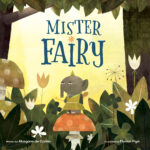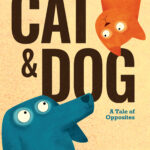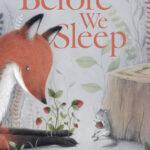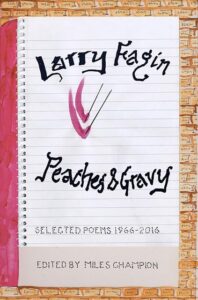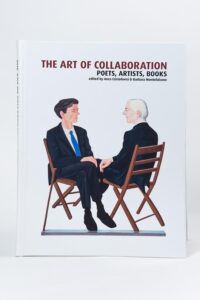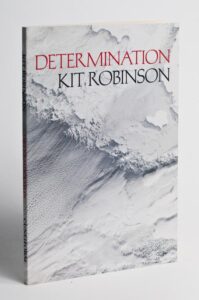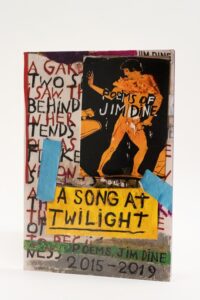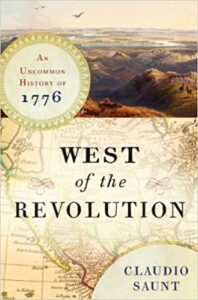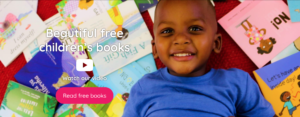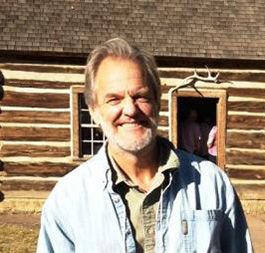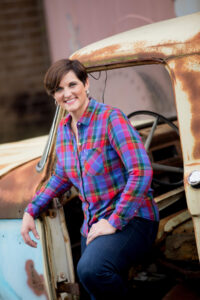Anders Dunker: Rediscovering Earth
May 18, 2021 by David
Filed under Non-Fiction, WritersCast
 Rediscovering Earth: Ten Dialogues on the Future of Nature – conversations with Anders Dunker – OR Books – 9781682195086 – Paperback – 240 pages – $23 – ebook versions available at lower prices
Rediscovering Earth: Ten Dialogues on the Future of Nature – conversations with Anders Dunker – OR Books – 9781682195086 – Paperback – 240 pages – $23 – ebook versions available at lower prices
Thinking about how to think about climate, earth, humans on it, and the future, are major challenges for all of us who care about the future of our planet. It may be that most of us alternate between despair and rage, and even with an optimist’s outlook, we have trouble dealing with the sheer scope of what is happening to our surroundings (I think using the words “environment” and “earth” and “planet” has now become counterproductive).
I am constantly searching for writing, whether it is in books, online or in magazines, that will offer me constructive perspectives, different and hopefully better conceptual frameworks than those we have developed, toward making it possible to be both continually engaged and continually energized. I don’t usually feel I can do that on my own.
Anders Dunker’s collection of conversations with some of the deeper thinkers about the future and us in it, turns out to be very useful. The diverse viewpoints, the language of thoughtfulness and care, the commitment to inquiry, are all inspiring elements of this short book. And with such a diverse set of outlooks, it is possible to not lose sight of the core reason for this book to exist – to inspire hope.
Dunkers poses this question: “if we know that we are destroying the planet, our habitat, why do we continue to do it?” His dialogues attempt to investigate this question, and thereby come to some sense of how we might go forward, not ourselves alone, but the nature that we rely on, together.
This is the challenge we face right now. The challenge will be different in a few years, the unfolding story will force a reckoning. For now, those who read the stories in Rediscovering Earth will be able to come to a better sense of what we can and must do together in this moment.
Dunkers proposes that our future, nature itself, will be based on how we navigate the realm of culture, including philosophy, art and literature, the groundwork of our being, as much as or more than in scientific and technological matters. In order to act, we must redefine ourselves, become truly planetary citizens, and recognize how we are all connected, and then act upon, from that, understanding.
We had a terrific conversation, not only about the book and the contributors to it, but about how we will uncover the future and live in it together. A very hopeful experience. I came away from our talk fully energized, and feeling stronger.
Anders Dunker bio (from his website): Born in Norway, raised in the countryside in a family much dedicated to wildlife and nature. Educated in humanistic subjects and Cultural History at the University of Oslo, with Philosophy, Comparative Religion and Comparative Literature as main subjects. Teacher of Aesthetics and other subjects at the University of Oslo, Philosophy and Cultural History in Rome and Barcelona.
Senior lecturer at Kulturakademiet (Norwegian private college) for 10 years, now writer for acclaimed Norwegian & international newspapers and magazines (Le Monde diplomatique, LA Review of Books, NyTid, Vagant, Samtiden, Modern Times Review, Agora). Board member of the Norwegian Writers’ Climate Campaign,
Series Editor of Futurum Collection at Existenz Publisher (Norway) and Editorial Board Member at Technophany, a journal for Philosophy and Technology.
His current book projects include an essay on the future as seen from California and a volume on Peter Sloterdijk’s philosophy. Anders currently lives with his wife, an environmentalist and animalist singer, in Los Angeles, California. He is also a plein air painter.

From Dialogue One: “The Rediscovery of the Earth—with Bruno Latour”
Anders Dunker (AD): Historically, the age of discovery is over. Are we none the less in a new age—an age of rediscovery—that can lift our spirits and propel us past the nagging feelings of tragedy?
Bruno Latour (BL): Well, it is my way of being optimistic. It is my way of not taking part in the sense of doom. Scientifically and technically, it is perfectly rational to be a pessimist, but I don’t think it makes much sense politically. Optimism has nothing to do with technoscience—DNA plus cognitive science plus robots plus outer space. Instead it is connected with exploring the world we thought we knew. I will borrow the term from you and call our time period an age of rediscovery, even if it is grandiose. What we call local has quite a different meaning in relation to Gaia than it previously had. It now has many different dimensions. The rediscovery of a place is in some ways a cliché—since ecologists have been talking about the same thing for years—but this concept also leads to a different way of framing the world, it leads to another geometry, so to speak. Water gets another meaning. Ice gets another meaning. Industry is considered in relation to the amount of CO₂ in the atmosphere. We see things in new ways. Antibiotics have a different kind of globalization than weeds, for example.
AD: Traditionally, the concept of the local has had a flavor of subjectivity—existence circumscribed by the immediate horizon—in contrast to the scientific gaze, which purports to see everything as if from outer space?
BL: And here lies the error. The local is objective. The gaze from inside the critical zone is completely objective, it is just objective in a different way. What we see is real, but this reality only becomes visible if we learn what different parties are up to, what they need, what they want, what they can accomplish.
Buy the book directly from the publisher, OR Books.
Podcast: Play in new window | Download
Frank Figliuzzi: The FBI Way – Inside the Bureau’s Code of Excellence
May 5, 2021 by David
Filed under Non-Fiction, WritersCast
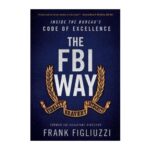 The FBI Way: Inside the Bureau’s Code of Excellence – Frank Figliuzzi – 9780062997050 – hardcover – HarperCollins – 272 pages – $27.99 – January 12, 2021 – ebook versions available at lower prices
The FBI Way: Inside the Bureau’s Code of Excellence – Frank Figliuzzi – 9780062997050 – hardcover – HarperCollins – 272 pages – $27.99 – January 12, 2021 – ebook versions available at lower prices
If you have been paying attention to the news for the five years since the US elevated Donald J. Trump to the presidency of the United States, with the help of Fox News, the Mercer family, the Koch brothers and their associates, Facebook, Twitter and other social media, aided further by the moral and intellectual bankruptcy of the Republican Party, the vapidity of the mainstream media, years of inattention to the teaching of American history and civics in schools everywhere, undergirded by a calculated, systematic conspiracy with the Russian government (that no doubt, was surprised by how easy it was to game the greatest democracy in the history of the world), you have seen and heard the former FBI agent, Frank Figliuzzi, on MSNBC and other news outlets, talking about the visible public corruption that was going on throughout this painful period of our lives.
For many of us who remember the fifties, sixties and seventies, when the FBI was a witting tool of a repressive political state, it has been more than disconcerting to suddenly see the FBI as an upstanding exemplar of a rule-abiding democracy – that is under attack from a right wing political party that used to (over) value the rule of law in service to the capitalist enterprise. That attack, surreal as it would seem, is a symptom of the “down is up” necessities of authoritarianism, which is where the Republican party has traveled to over the past few years. Trump was and is not the head of the beast, he was and is simply a tool used by a particular power center that found him as he found them, willing partners in a plan that serves their various contiguous but-not-entirely-shared needs and goals. Do not underestimate the war being waged against reality still going on in full force, even though the dumpster is no longer the head of state.
Which brings us back to the matter at hand. Frank Figliuzzi is a throwback to a world that too often does not still appear to be with us. The three words on the cover of his book are at the core of the FBI’s training and belief system: “Fidelity, Bravery, Integrity.” These principles mean everything to him. Cynical as so many of us are today, it is novel, and even heartening to meet someone who believes so deeply and completely in a moral system at a time when even honor systems all too often are not honored (West Point is a good example) and when elected officials so readily ignore their oaths of office. We need people who can remind us by the example of their behavior (and their words), that fairness, honesty, and justice can still exist in our society.
Figliuzzi is aware of this. He aims his book at leaders in businesses and other institutions, to demonstrate to them and all of us, the enduring power and value derived from following principles that honor and respect the people that work there, their stakeholders at every level, and the institutions themselves. As I started to read this book, I wondered how the FBI, as a law enforcement organization, could be stood up as a model for profit-making businesses and non-governmental organizations, but Figliuzzi is persuasive, and the ideas he communicates are indeed powerful. Many of the examples he provides to document why the FBI should be viewed as a model for others are surprising, as they demonstrate a commitment to deeply moral values, and to treating individual employees as human beings rather than simply as cogs in an inhumane machine.
“It’s times like these” that make books like this one crucial and important. It’s impossible not to be deeply affected by this book in ways that you might not have expected.
Figliuzzi is a smart guy, and as an experienced media figure, he knows how to tell a compelling story. I find myself somewhat surprised to say that The FBI Way is a useful and maybe even an important book for our times. I very much enjoyed our conversation and I trust you will as well, though I doubt anyone listening here will be signing up to join the FBI anytime soon.
“Figliuzzi’s war stories of hunting terrorists are spellbinding, but equally important is his playbook for how the FBI’s methods for achieving excellence in performance can be duplicated by a wide variety of organizations. This should be required reading in business schools across America.” – Andrea Mitchell, Chief Foreign Affairs Correspondent, NBC News
Author website here.
Buy the book here.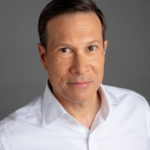
Podcast: Play in new window | Download
Publishing Talks: Interview with Angus Yuen-Killick of Red Comet Press
April 21, 2021 by David
Filed under Publishing History, PublishingTalks, The Future
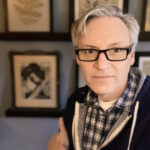 Publishing Talks began as a series of conversations with book industry professionals and others involved in media and technology, mostly about the future of publishing, books, and culture. I’ve spent time in conversation with people in and around the book industry talking about its evolution in the contexts of technology, culture, and economics.
Publishing Talks began as a series of conversations with book industry professionals and others involved in media and technology, mostly about the future of publishing, books, and culture. I’ve spent time in conversation with people in and around the book industry talking about its evolution in the contexts of technology, culture, and economics.
Later, this series broadened to include conversations that go beyond the future of publishing. In an effort to document the current and recent past of book publishing, I’ve talked with a variety of editors, publishers and others who have been innovators and leaders of all kinds, past and present.
These conversations have been inspirational to me on many levels. I have gotten to speak with visionaries and entrepreneurs, as well as editors and publishers who have influenced and changed contemporary literature and culture. I’ve also had the opportunity to speak with a number of friends and colleagues whose work has influenced my own.
One such person is Angus Yuen-Killick, whom I have known since the 1990s when he came to the US to set up an outpost for a small UK publisher I was working with at the time. I was immediately impressed with Angus’ energy, vision and intelligence and since then, he has gone on to have a great career in children’s book publishing, his true love in the book business.
After working for several larger children’s book publishers over many years, Angus has now founded his own publishing imprint, Red Comet Press, about which he says:
“This is the realization of a long-held dream. The past year has forced us to reevaluate our priorities and reflect on our future. Launching a new publishing company seemed at once a crazy proposition, but also the absolute right thing to do.
At Red Comet Press, we will focus on the craft of publishing and curating a list of hand-picked titles. We will shepherd them through the publishing process, from creator to reader, with care and attention to detail. When we acquired these first books, it was a sign. They are inventive, surprising, touching, and multi-layered—and they remind me, upon every reading, of the passion and creativity that drew me to this business in the first place.”
Angus was interviewed earlier this year in Publishers Weekly, where he said “When I first started in the business, I worked at a tiny poetry publishing company in the north of England. My dad was an editor there and I was exposed to every aspect of the publishing process. When I left Macmillan last year and was trying to figure out the next step in my career after 30 years in corporate publishing, I realized that my dream was returning to that model of shepherding a list of books from the beginning to the end. This felt like the right thing for me to do next.”
Angus has help from his husband, Michael Yuen-Killick, a talented graphic designer, who serves as creative director for Red Comet, and a raft of friends and associates drawn from his many years of publishing. During his more than thirty years in book publishing, Angus has worked in key roles at various houses, including Macmillan, Penguin, Disney, and DK. I doubt there is anyone in children’s book publishing he does not know; he is widely respected and admired by his colleagues, and by many authors and illustrators as well.
It is always stimulating and fun for me to speak with Angus, so having him as a guest here is a special pleasure. If you are interested in the particular challenges of children’s book publishing, you will learn a great deal from Angus even from this brief interview. His knowledge and experience is unmatched. His enthusiasm and intelligence are often inspirational. And the books he publishes at Red Comet are going to be fantastic too. I am really looking forward to seeing his first list of books later this year.
Podcast: Play in new window | Download
Publishing Talks: Interview with Kyle Schlesinger of Cuneiform Press
April 5, 2021 by David
Filed under Publishing History, PublishingTalks
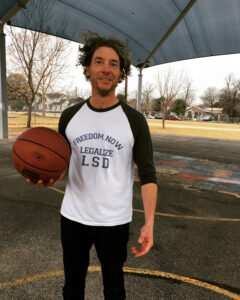 Publishing Talks began as a series of conversations with book industry professionals and others involved in media and technology, mostly talking about the future of publishing, books, and culture. I’ve spent time talking with people in the book industry about how publishing is evolving in the context of technology, culture, and economics.
Publishing Talks began as a series of conversations with book industry professionals and others involved in media and technology, mostly talking about the future of publishing, books, and culture. I’ve spent time talking with people in the book industry about how publishing is evolving in the context of technology, culture, and economics.
Later this series broadened to include talks and interviews that go beyond the future of publishing. In an effort to document the literary world, I’ve talked with a variety of editors, publishers and others who have been innovators and leaders in independent publishing in the past, and into the present.
These conversations have been inspirational to me on many levels. I have gotten to speak with visionaries and entrepreneurs, as well as editors and publishers who have influenced and changed contemporary literature and culture. I started out in independent publishing, and early on learned how to set type by hand and operate mechanically operated printing presses that were even then becoming obsolete. I was never a very good printer and admire the poets and editors who have taken up the mantle of what is known as fine press printing to produce books that are artistically innovative and at times handmade.
Kyle Schlesinger is a poet and independent publisher whose work I have long admired. His press, Cuneiform (“Poetry, Typography and Artists’ Books) has established an incredible body of work since he issued his first book in 2000, Luisa Giugliano’s Chapter in a Day Finch Journal, published in Buffalo while Kyle was a student in the Poetics Program at SUNY, where he studied with Robert Creeley, Susan Howe, and Charles Bernstein.
Kyle first discovered the idea of printing through Will Hamlin, a Black Mountain College alumnus, while he was studying at Goddard College. He learned to print first in Vermont on an 1889 Prouty platen press with metal type. As he says on the Cuneiform site:
“We printed the literary review for Goddard College, instructions for using a compost toilet, Gertrude Stein stationery, and a few short poems. I remember building up the letters of William Carlos Williams’ “A poem is a small (or large) machine made of words” early on.”
This early experience quite evidently sent Kyle on the path to becoming a fine printer and book designer, and the hand work well suited to his personal design views, as he has gone on to produce a range of excellent writing expressed through fine design and outstanding creativity in book production.
After he left Buffalo, Kyle moved to Austin, Texas, where Cuneiform is now based. He teaches at the University of Houston, Victoria. Cuneiform produces books of poetry, artists’ books and even scholarly works, using letterpress and offset printing. Kyle and I had a great conversation earlier this spring. When it is possible to travel again, I am looking forward to visiting Cuneiform and seeing Kyle and the great Vandercook 219 proof press he runs in his shop in Austin.
Kyle and I share a number of connections, including poets and old friends, Kit Robinson, Steve Benson, and Kyle printed for years on a press he got from another old friend, Michael Waltuch, as well as a shared interest in Black Mountain College and its many amazing poets, artists and craftspeople. It’s inspiring to see his work, that carries forward the meaningful traditions of poets in collaboration with artists in the making of books. We had a wide ranging conversation about his work, past, present, and future.
Visit the Cuneiform Press website – do consider buying some books or subscribing or even donating, as Cuneiform is a 501 (c)3 nonprofit, donations are tax-deductible!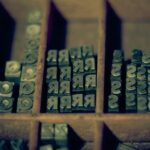
Podcast: Play in new window | Download
Unworthy Republic: The Dispossession of Native Americans and the Road to Indian Territory by Claudio Saunt
March 18, 2021 by David
Filed under Non-Fiction, WritersCast
 Unworthy Republic: The Dispossession of Native Americans and the Road to Indian Territory – Claudio Saunt – 97800393541564 – paperback – W.W. Norton – 416 pages – $26.95 – February 23, 2021 – ebook versions available at lower prices
Unworthy Republic: The Dispossession of Native Americans and the Road to Indian Territory – Claudio Saunt – 97800393541564 – paperback – W.W. Norton – 416 pages – $26.95 – February 23, 2021 – ebook versions available at lower prices
This is a book that should be required reading for all Americans. Even those of us who think we know the story of the Trail of Tears and other important efforts by our white antecedents to eliminate Indians from the eastern United States will learn from the incredibly well researched and carefully documented story told by a brilliant historian.
Unworthy Republic documents the reprehensible story of the “Indian Removal” of the 1830s, which resulted in the forced migration of Native Americans whose ancestral territories include what is now North Carolina, Georgia and Florida, and to a lesser extent Ohio and western New York state.
On May 28, 1830, the United States Congress authorized the forced expulsion of indigenous people then living in the east to a new Indian territory west of the Mississippi, under the false notion that they would be free to live their lives away from white settlers and farmers then pouring into their unceded lands.
The US government then set out to forcibly move at least 80,000 Native Americans from their homelands west, usually on foot, and always at their own expense. It was a disastrous undertaking that was shot through with fraud and a racist disregard for the health and well being of the Indians by the white citizenry and politicians who wanted to steal their land, as well as by the military that was used to administer and enforce the effort.
As Saunt exhaustively documents, fraud, intimidation, murder and theft were the common tools of the day. Rich planters and politicians created a fictional hypocritical story line to justify their greed and theft. In the course of the removals, many thousands of Native Americans were killed, many more suffered horribly, and almost all lost their lands and what few possessions they had at the time. In the end, the “removal” can be seen for what it was, an unofficial US policy of extermination constructed to benefit southern slave owning planters with the active participation and support of greedy financial speculators, mostly from New York.
In this book, Saunt makes three related core arguments: “The state-administered mass expulsion of indigenous people was unprecedented, it was a turning point for indigenous peoples and for the United States, and it was far from inevitable.”
It is impossible to read this book and to not be angered, even now that we are almost two hundred years removed from this decade of horror. The actual events that underpin the history ofd the United States must be reconciled with the manufactured myths that we use to tell our own stories to ourselves. It is not a matter only of white guilt (though there is nothing wrong, in my opinion, with guilt, if it can be harnessed to positive ends) nor is an intellectual hand wringing a useful response to learning the hard lessons of our history. What we can take from these stories is an understanding of how to be better at living our ideals, and transforming what we have been to something different, that gives voice to the actual people whose land we live on today. The acknowledgment of indigenous people can not be simply gestural. A book like Unworthy Republic must draw us closer to action – as Buddhists often point out – no one is free until all are free. The American correlation is that no one can live comfortably with the land until all of us do. Our history is with us still.
Finalist for the 2020 National Book Award for Nonfiction
Shortlisted for the 2020 Cundill History Prize
Named a Top Ten Best Book of 2020 by the Washington Post and Publishers Weekly and a New York Times Critics’ Top Book of 2020
Claudio Saunt is the Richard B. Russell Professor in American History at the University of Georgia. He is the author of award-winning books, including A New Order of Things; Black, White, and Indian; and West of the Revolution. He lives in Athens, Georgia. It was an honor for me to have the opportunity to speak with Claudio about this important and powerful book.
Author website here.
Buy the book here.
Podcast: Play in new window | Download
The Brothers Mankiewicz: Hope, Heartbreak, and Hollywood Classics by Sydney Ladensohn Stern
February 27, 2021 by David
Filed under Non-Fiction, WritersCast
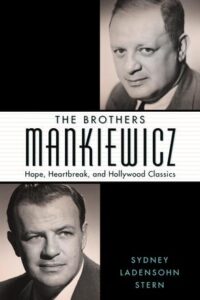 The Brothers Mankiewicz: Hope, Heartbreak, and Hollywood Classics – Sydney Ladensohn Stern- 9781617032677 – University Press of Mississippi – 480 pages – 88 b&w illustrations – October 2019 – Hardcover – $35 – ebook version available at lower prices
The Brothers Mankiewicz: Hope, Heartbreak, and Hollywood Classics – Sydney Ladensohn Stern- 9781617032677 – University Press of Mississippi – 480 pages – 88 b&w illustrations – October 2019 – Hardcover – $35 – ebook version available at lower prices
There are any number of characters and influencers in the history of modern American film-making, but among the many greats who contributed to its evolution into the dominant form of our popular culture, the Mankiewicz brothers stand out. Between them, they played critical roles in an incredible array of films that comprise our film canon today. Herman (1897–1953) and Joe (1909–1993) either wrote, produced, or directed (sometimes both or all) more than 150 films, from late era silents to almost modern era big budget productions.
Herman is credited with writing the screenplay for Citizen Kane with Orson Welles (though the amount of work done by each of them has long been disputed) and shared the picture’s only Academy Award. Joe won four Oscars altogether, including two for writing and directing All About Eve, which also was awarded Best Picture in 1950.
Both the older Herman and the much younger Joe started as writers and then became successful as producers and in Joe’s case as a director as well. They came to Hollywood as upwardly mobile children of immigrants, brilliant intellectually and wildly witty, and feeling extremely ambiguous throughout their careers about the value and importance of their work in film – concerned it seems, to not be recognized as serious artists, as their novelist and playwright friends had been. The conflict between art and popular culture defined their lives and caused them each great suffering.
Herman was an early member of the renowned Algonquin Round Table group of wits, and in his unhappiness and self destructiveness, frequently lost all his money gambling. He alienated all the major film studios, and was dead by the age of 55. At the same time that Herman was ruining his career, Joe found significant success as writer, producer, and director, although he was almost addicted to deeply felt romances with the stars he worked with, including Judy Garland, and Joan Crawford, causing terrible suffering to his wife and family.
Biographer Sydney Ladensohn Stern spent ten years in researching and writing this comprehensive portrait of twentieth century American film through the lens of two of its most important and compelling figures. She’s written a thorough and highly readable narrative that gives us a chance to understand the complexities of her characters, and for anyone with an interest in modern film history, this book will be irresistible. The Mankiewicz brothers are among the titans upon which the movie business was built – their writing helped to define the language we see now as emblematic of an entire era in American history. This was a very fun book for me to read and I very much enjoyed talking to Sydney about her book. I think you will enjoy hearing our conversation and you should read this book (now available as an audiobook too).
“one of the best of the recent biographies of screenwriters … One thing I love about her book are the footnotes that trace the lineage of some of the great Mank stories (“The white wine came up with the fish” and “Imagine that, the whole world wired to Harry Cohn’s ass”…) ” –Tom Stempel
Sydney Ladensohn Stern worked as a reporter for Fortune and Money magazines and as an editor and award-winning columnist for the Scarsdale Inquirer before she started freelance writing. Her column, “Suburban Exposure,” covered politics and contemporary culture as well as her family and community, but she discontinued it after her sons left home and stopped providing her with material. She has freelanced for numerous publications including the New York Times. Her first biography is Gloria Steinem: Her Passions, Politics, and Mystique.
Author website here.
Buy the book here.
Podcast: Play in new window | Download
Publishing Talks: Interview with Arthur Attwell
February 2, 2021 by David
Filed under Ebooks and Digital Publishing, PublishingTalks, Technology
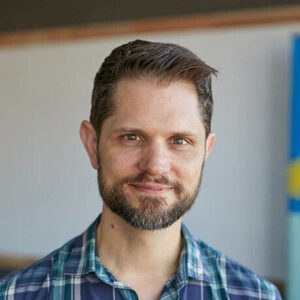 Publishing Talks began as a series of conversations with book industry professionals and others involved in media and technology, mostly talking about the future of publishing, books, and culture. I’ve spent time talking with people in the book industry about how publishing is evolving in the context of technology, culture, and economics.
Publishing Talks began as a series of conversations with book industry professionals and others involved in media and technology, mostly talking about the future of publishing, books, and culture. I’ve spent time talking with people in the book industry about how publishing is evolving in the context of technology, culture, and economics.
Some time back, this series broadened to include conversations that go beyond the future of publishing. In an effort to document the literary world, I’ve talked with a variety of editors, publishers and others who have been innovators and leaders in independent publishing in the past and into the present.
These conversations have been inspirational to me on many levels. I have gotten to speak with visionaries and entrepreneurs, as well as editors and publishers who have influenced and changed contemporary literature and culture.
Today’s guest is another such special individual. Arthur Attwell, who lives in Capetown, South Africa, got his start in publishing working for Oxford University Press as an editor. Impatient with the inefficiencies of publishing, he left to start up his current venture with some collaborators, Electric Book Works, which has been building books since 2006 that are active in multiple formats and versions, from beautifully produced print books to well fashioned ebooks to websites that express the book form in new ways.
In addition to the work he has done with Electric Book Works, this energetic entrepreneur has co-created an impactful health care information project, Bettercare, which has created and distributed healthcare learning materials to thousands of practitioners and consumers all over Africa. Although this project, entirely volunteer run, has had to cut back on its activities because of the pandemic, its impact continues with part timers and reduced capabilities.
Perhaps the most exciting efforts I have learned about recently is yet another Attwell project, Book Dash. Arthur and his partners created (and have since carefully refined) a process that assembles teams of book professionals to create and publish children’s books, and which also the raises money and support needed for the printing and distribution of thousands of books across Africa, with the stated goal that every child should own 100 books by the time they are five years old! The Book Dash process was built as an intensive one day effort, gathering teams in person, but has quickly adapted to a virtual model, enabling contributors to participate from multiple physical locations. They have made some really terrific books using this process and Book Dash has now distributed over one million books to children in Africa.
With the time difference between us, arranging this talk required bit of organizing, but we were able to speak recently by Skype. My original goal was simply to give Arthur an opportunity to talk about Book Dash. But we ended up having a much wider conversation on a range of topics, including distributed print on demand printing, a dream concept we both have explored, and much more. I suspect we will talk further in the necessary follow up conversation I hope to have with him as there are so many exciting ideas to discuss.
For now, I hope you will enjoy listening to Arthur Attwell as much as I did.
Arthur’s “On Transit” Talk
Podcast: Play in new window | Download
Surviving Genocide: Native Nations and the United States from the American Revolution to Bleeding Kansas: Jeffrey Ostler
January 12, 2021 by David
Filed under Non-Fiction, WritersCast
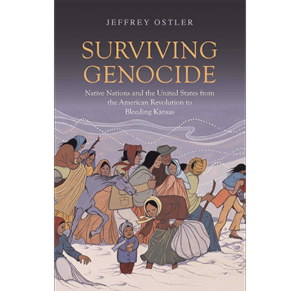 Surviving Genocide: Native Nations and the United States from the American Revolution to Bleeding Kansas – Jeffrey Ostler – 9780300255362 – Yale University Press – Paperback – 544 pages – September 22, 2020 – $25 – ebook versions available at lower prices
Surviving Genocide: Native Nations and the United States from the American Revolution to Bleeding Kansas – Jeffrey Ostler – 9780300255362 – Yale University Press – Paperback – 544 pages – September 22, 2020 – $25 – ebook versions available at lower prices
“A landmark book essential to understanding American history, Surviving Genocide is an act of courage. Ostler’s brilliant concept of reconstructing ‘an Indigenous consciousness of genocide’ is significant for its insight into how American Indians understood, discussed, and resisted genocidal threats to their families, communities, and nations. His modern vocabulary of ‘atrocities’ and ‘killing fields’ is not for political effect but appropriate to the brutal reality of Indian policy in American history.”—Brenda Child, Northrop Professor of American Studies, University of Minnesota
Even though many of us feel we are familiar with the story of the “settling” of America by Europeans and the dispossession of indigenous people, reading Jeffrey Ostler’s book, part one of a major two-volume history, will educate every single one of us to a better understanding of the full scope of the takeover of a continent by invading Europeans. Conquest and genocide are terms we seem unable to apply to our own history, preferring still a more sanitized version of the centuries long overwhelming of the people who lived here before Europeans arrived in force.
Ostler has spent years of research documenting the governmentally sanctioned use of force to remove or kill the indigenous people who were inconveniently in the way of the relentless expansion of the American republic. In this book he documents the losses from the violence – massacres, destruction of habitat and lifeways, diseases and cultural upheaval suffered sequentially by native peoples for hundreds of years as first colonial settlers and then Americans flooded the continent. This volume covers the story of the eastern United States from the 1750s to the beginning of the Civil War that set the stage for the post-Civil War expansion that is perhaps the better known narrative – buffalo, horses, trains, Crazy Horse and the Lakota being so much a part of popular culture imagery. As Ostler shows, the way this played out was not “inevitable” and Manifest Destiny was neither. The indigenous people were outnumbered, but often not out maneuvered or outwitted, and their ability to survive the nightmares of dispossession and attempted genocide is heroic.
As Americans, it is sometimes difficult to look at our own history with honesty. It is often said that the “original sin” of America is slavery, but I think we must grapple with the actuality that there are two essentially economic-based social and cultural wounds at the heart of the American project. First, there is the forced dispossession of the people who were on the land itself, and second, the forced migration and enslavement of Africans for the benefit of white Americans and their economic development. We must learn as much as we can about the history of the last five hundred years in North America in an unromanticized, clear-eyed effort to fully comprehend what our forebears did in the course of creating the American dream all of us are allowed thereby to enjoy. The truth in all its complexity should serve as counterweight to the false narratives and self-serving images we choose to live by, all created as a form of ongoing social control.
Indigenous people have survived despite the many attempts to extirpate them or to forcibly transform and bend their cultures into the conquerors’ image of what “civilization” looks like. Still, the traumatic effects of conquest need to be recognized, acknowledged and repaired and it would be no small thing to recognize formally that a genocide was in play, with all the social and political results that term carries with it. This book and presumably the subsequent volume in Ostler’s work, should help us move in that direction.
The book is well written, hard to put down and completely engrossing; its authoritative and well-researched approach makes it a powerful document and well worth your time to read.
I’m grateful for Jeffrey Ostler for taking the time to talk to me about this book and for Yale University Press for alerting me to it.
Jeffrey Ostler is Beekman Professor of Northwest and Pacific History at the University of Oregon and the author of The Lakotas and the Black Hills and The Plains Sioux and U.S. Colonialism from Lewis and Clark to Wounded Knee.
Podcast: Play in new window | Download
Even as We Breathe, A Novel: Annette Saunooke Clapsaddle
December 1, 2020 by David
Filed under Fiction, WritersCast
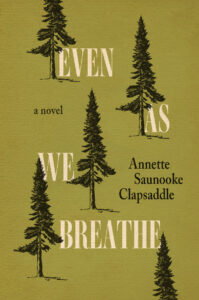 Even as We Breathe, A Novel – Annette Saunooke Clapsaddle – 9781950564064 – University Press of Kentucky – Hardcover – 240 pages – September 2020 – $24.95 – ebook versions available for sale at lower prices
Even as We Breathe, A Novel – Annette Saunooke Clapsaddle – 9781950564064 – University Press of Kentucky – Hardcover – 240 pages – September 2020 – $24.95 – ebook versions available for sale at lower prices
This has been a good year to read fiction, and I am really pleased to have discovered this author. She is a fine writer whose storytelling is powerful, yet restrained.
While this novel has some elements of a mystery, it is really a very personal story about family, love and growing up into the world of western North Carolina during World War II. The book’s main character is nineteen-year-old Cowney Sequoyah, who has grown up in the woods of Cherokee land, raised mostly by his grandmother. The novel is set between the upscale Grove Park Inn, an Asheville resort serving as an internment camp for diplomat prisoners of war and their families.
The Inn provides Cherokee men and women with employment off their reservation, and this is Cowney’s first real time away from home. At the core of the story, Cowley is accused of being involved in the disappearance of a diplomat’s daughter and must move back and forth to home as he attempts to understand the basis of the the unfair accusations, and prove his innocence while at the same time wrestling with his newfound love for another young Cherokee, Essie Stamper, and figuring out his complex family history.
There is alot going on in this subtle and quietly told novel! And a number of surprises are in store for the reader that bring the story to a remarkable and rewarding close.
Even As We Breathe is filled with details and moments that identify the Cherokee tribe and its homeland. The story gives Annette the opportunity to express the meanings of the Cherokee culture as it has survived into the modern world, sometimes still with the values of its people in conflict with the world of white people.
A secret room in the Grove Park Inn becomes a place where Cowney and Essie can escape the white world and try to imagine their futures independent of outsider influences. For awhile, it can feel to them that they have a place of their own. But racism and prejudice are constantly present, and both Cowney and Essie must face disappointment, and struggle to define their identities as Cherokees within a complicated environment that does not give them the space they truly need to be themselves.
Annette Saunooke Clapsaddle, an enrolled member of the Eastern Band of Cherokee Indians (EBCI), graduated from Yale University and has a masters from the College of William and Mary. Her unpublished novel, Going to Water won the Morning Star Award for Creative Writing from the Native American Literature Symposium and was a finalist for the PEN/Bellwether Prize for Socially Engaged Fiction. After serving as Executive Director of the Cherokee Preservation Foundation, Annette (National Board Certified since 2012) returned to teaching English and Cherokee Studies at Swain County High School. She is the former co-editor of the Journal of Cherokee Studies and serves on the Board of Trustees for the North Carolina Writers Network.
“Debut writer Annette Saunooke Clapsaddle lifts the curtain to show us a South we don’t know, revealed through the struggles of Cowney Sequoyah, a young man growing up within the Cherokee Nation of far Western North Carolina, and yet another surprise setting when he takes a job at Asheville’s fabled Grove Park Inn while it is being used by the US military as a place of internment for Axis prisoners of war during World War II. Even As We Breathe is a wonderful novel, complicated as life itself — thrilling, mysterious, and finally, a revelation!” — Lee Smith, New York Times bestselling author of Blue Marlin
This novel was impossible for me to put down and is one of my favorite books I have read this year. It was a deep pleasure for me to speak with Annette about this book and her writing.
I believe you will enjoy this conversation as much as I did.
Purchase Even as We Breathe from Bookshop.org to support independent bookselling.
Author’s website here.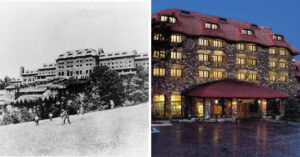
Podcast: Play in new window | Download
American Gospel, A Novel: Lin Enger
November 11, 2020 by David
Filed under Fiction, WritersCast
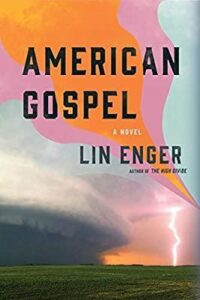 American Gospel, A Novel – Lin Enger – 978-1-5179-1054-9 – University of Minnesota Press – Hardcover – 248 pages – October 27, 2020 – $24.95 – ebook versions available for sale at lower prices
American Gospel, A Novel – Lin Enger – 978-1-5179-1054-9 – University of Minnesota Press – Hardcover – 248 pages – October 27, 2020 – $24.95 – ebook versions available for sale at lower prices
I read Lin Enger’s last novel, High Divide, a few years ago and was really taken with his writing and the mythic fictional structures he loves to tell. Storytelling is certainly humanity’s oldest art form. We use stories to explain ourselves to ourselves. Lin seems to breathe storytelling like air. His new novel is very different than his earlier books, at least that it is set more or less in modern times and in northern Minnesota, a place that Lin is completely familiar and comfortable with.
American Gospel begins in 1974 while the rest of the country is fixated on the Watergate scandal, on a north woods Minnesota farm, where Enoch Bywater, a self-styled preacher has had a vision of the Rapture. It is all so real for him, he believes that the end of the world is about to be upon us. His millennial dream is shared by his followers, and then as word spreads about the impending end of the world, his Last Days Ranch attracts a polyglot of dreamers and believers in a completely American quest for emergence.
Enoch’s son, estranged both from his father, and from Minnesota, is an aspiring reporter with his own dreams and ambitions who is attracted back home by the potential for a big story – and the possibility of reconnecting with his high school love who is now a Hollywood star, the biggest thing to ever happen to their small rural town.
And there is still more intrigue involving other characters with their own complex agendas, and the backdrop of the denouement of the Nixon saga.
Lin Enger enjoys telling stories that involve men and their fathers. And he is taken with mythological, almost Jungian figures. In this book we have father figures of all kinds – God, the president, the preacher, and even his son. The psychic wounds of America are on full display and the resonance with our current time is unmistakable.
Enger is a compassionate and perceptive writer whose prose is clean and clear. He plainly loves to shed light on who we are and what we must do in order to live together as humans in a complex, disparate modern world. American Gospel is a quietly brilliant novel that I hope will find a large audience.
Lin Enger grew up in Minnesota and now lives in Moorhead, where he teaches English at Minnesota State University. He’s won many awards for his fiction, which include the novels, The High Divide (2014) and Undiscovered Country (2008). During the 1990s Lin and his brother, the novelist Leif Enger collaborated (as L. L. Enger) on a series of mystery novels for Pocket Books.
I always enjoy speaking with Lin. We had a terrific conversation about this book, and much more for this podcast episode. I hope you enjoy it as much as I did.
Author’s website is here.
You can buy American Gospel from Bookshop.org.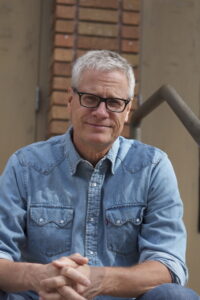
Podcast: Play in new window | Download

